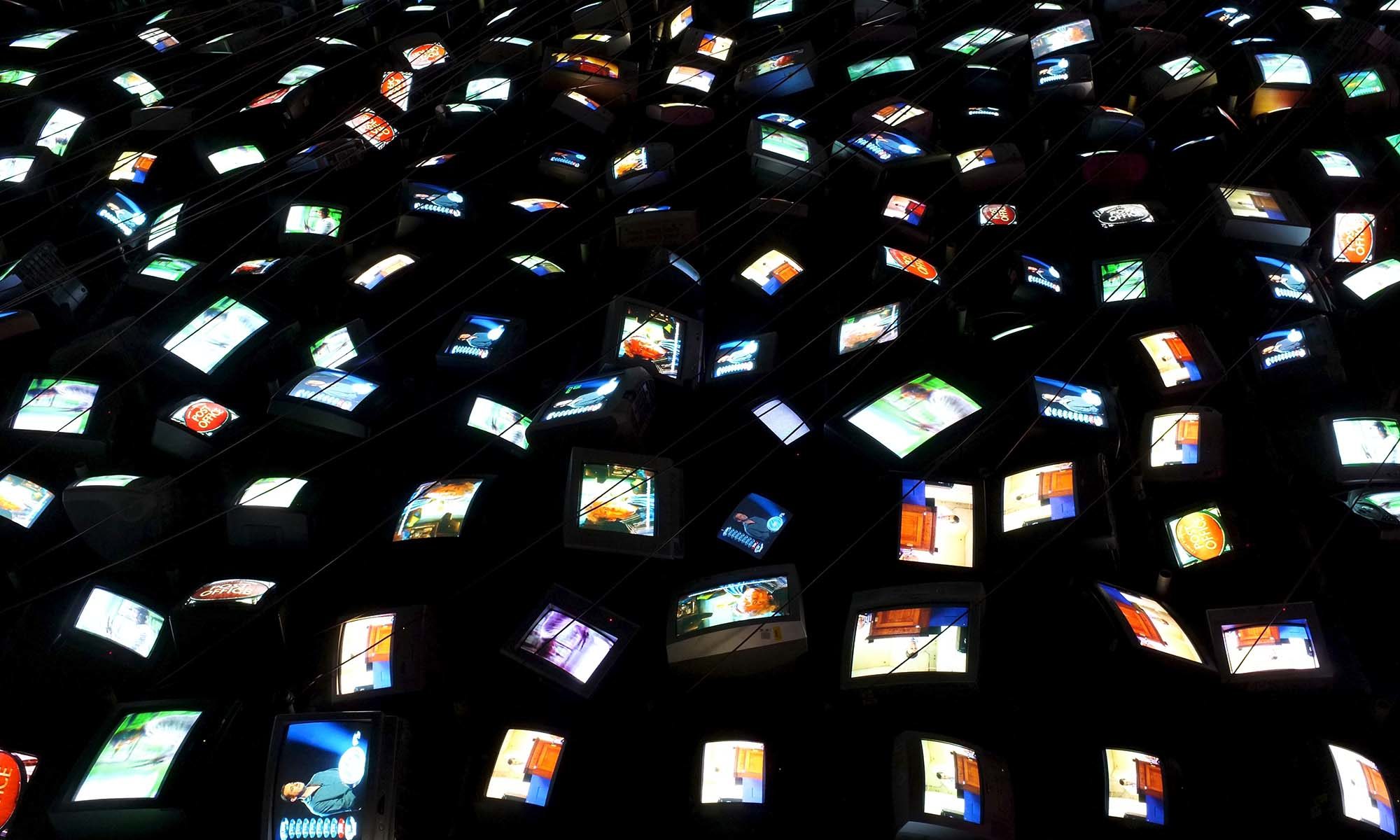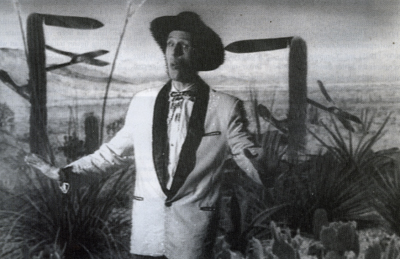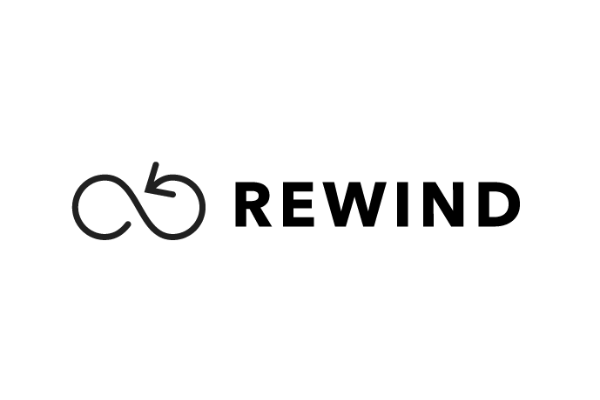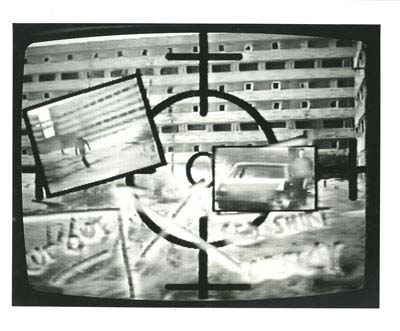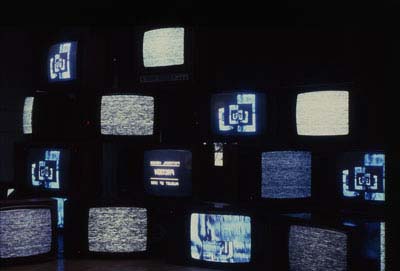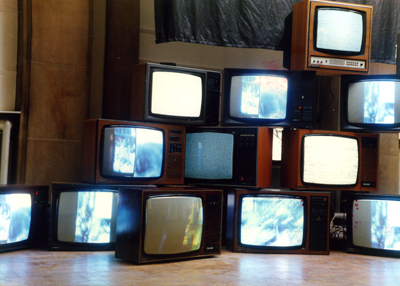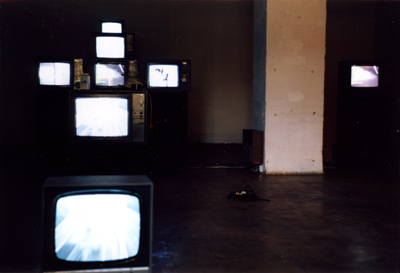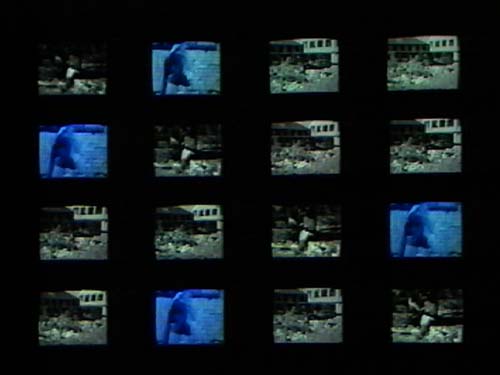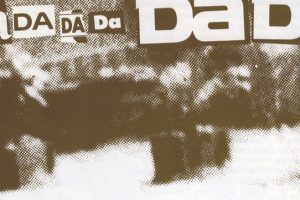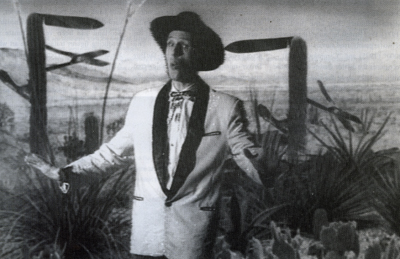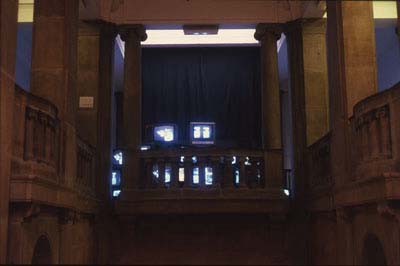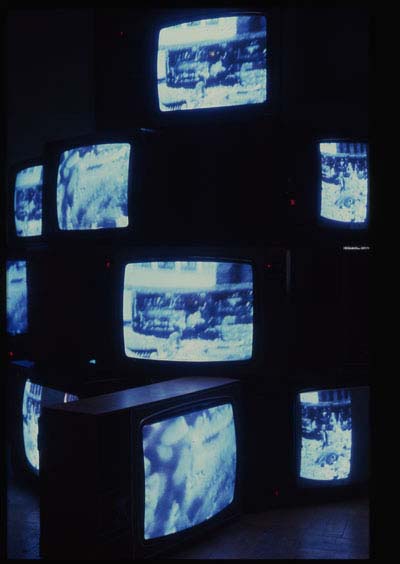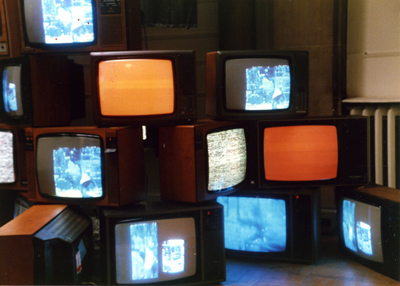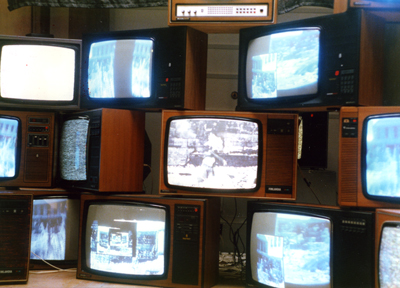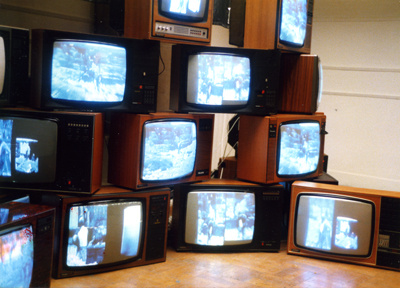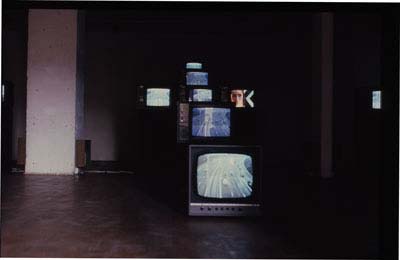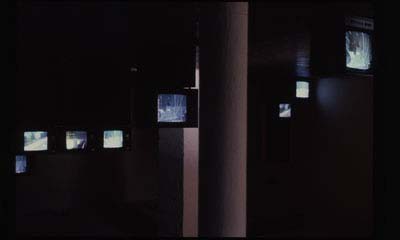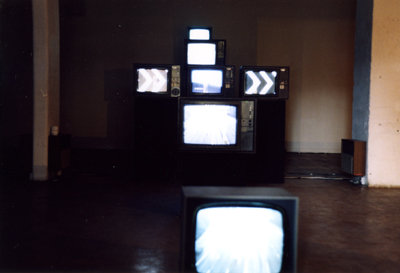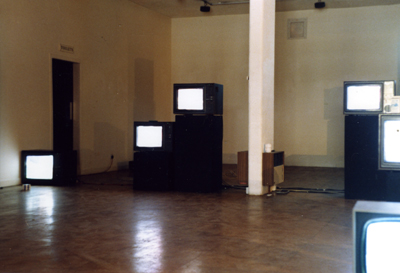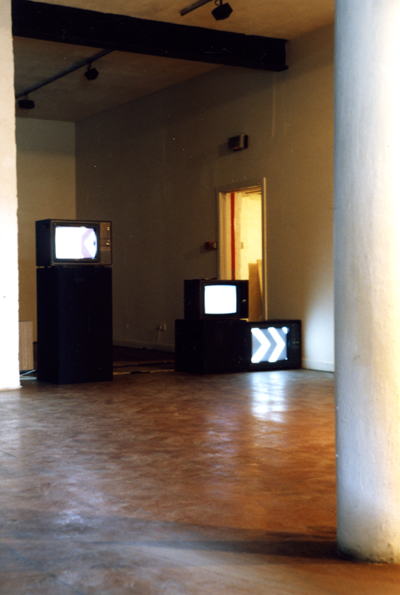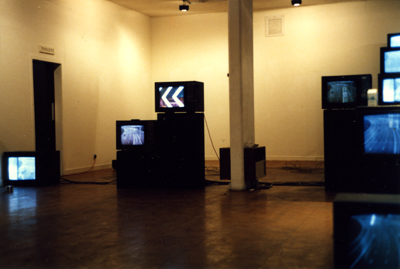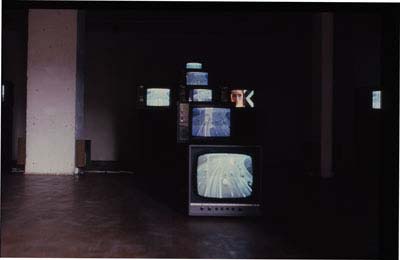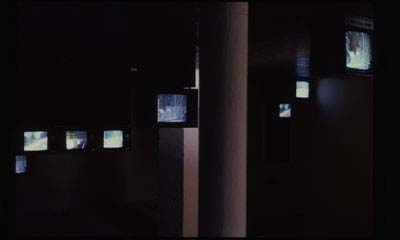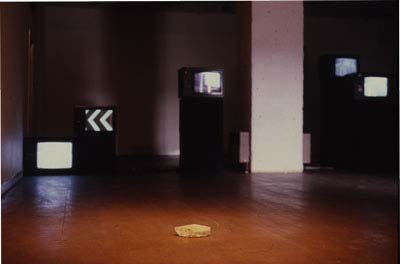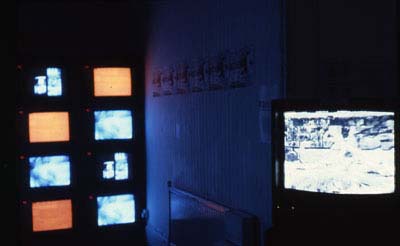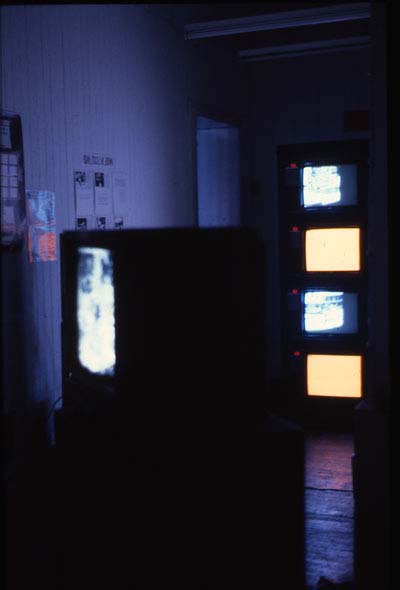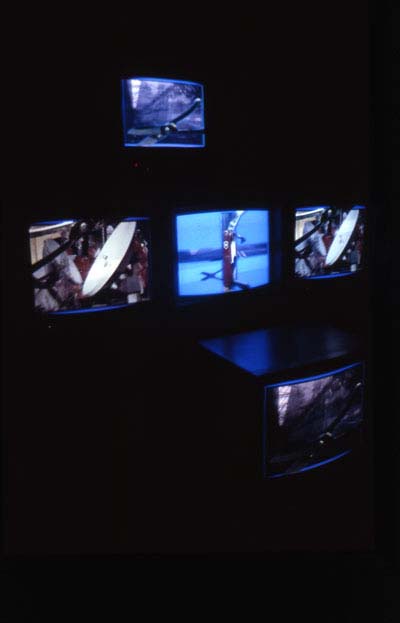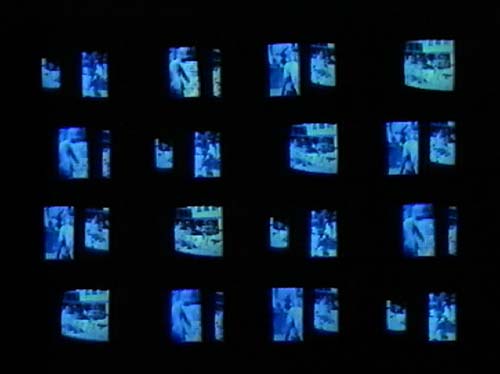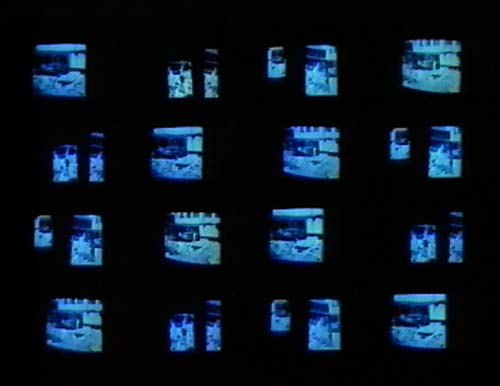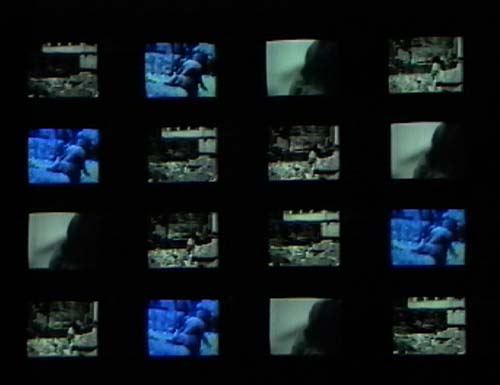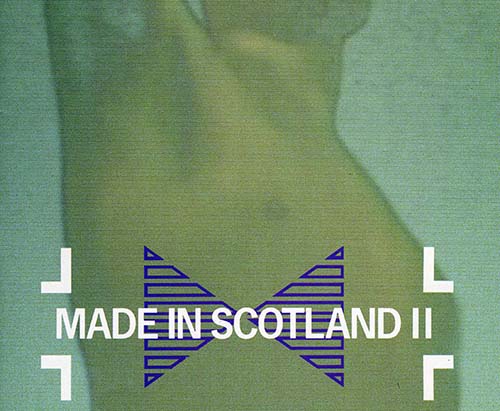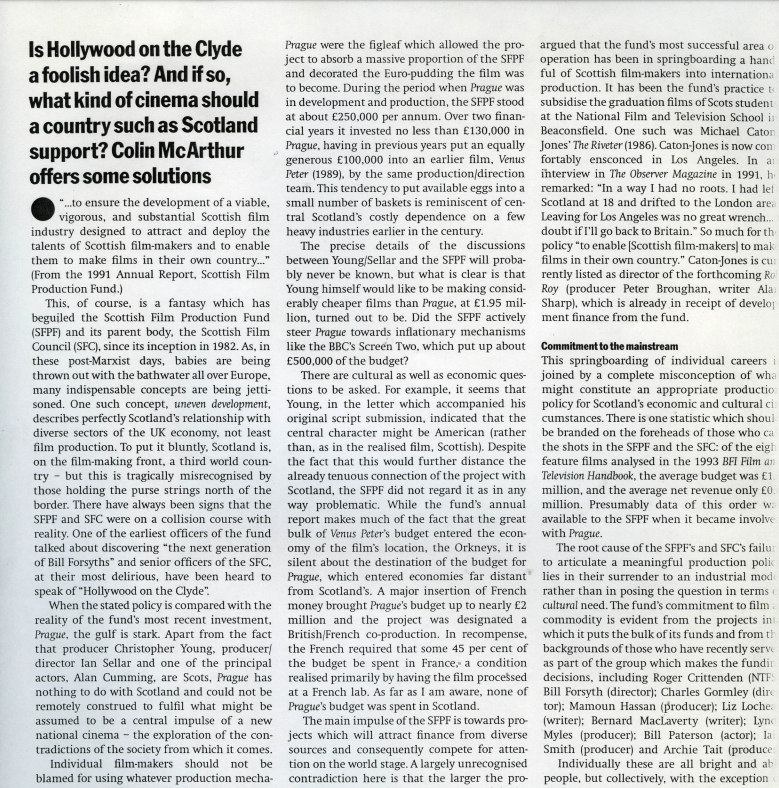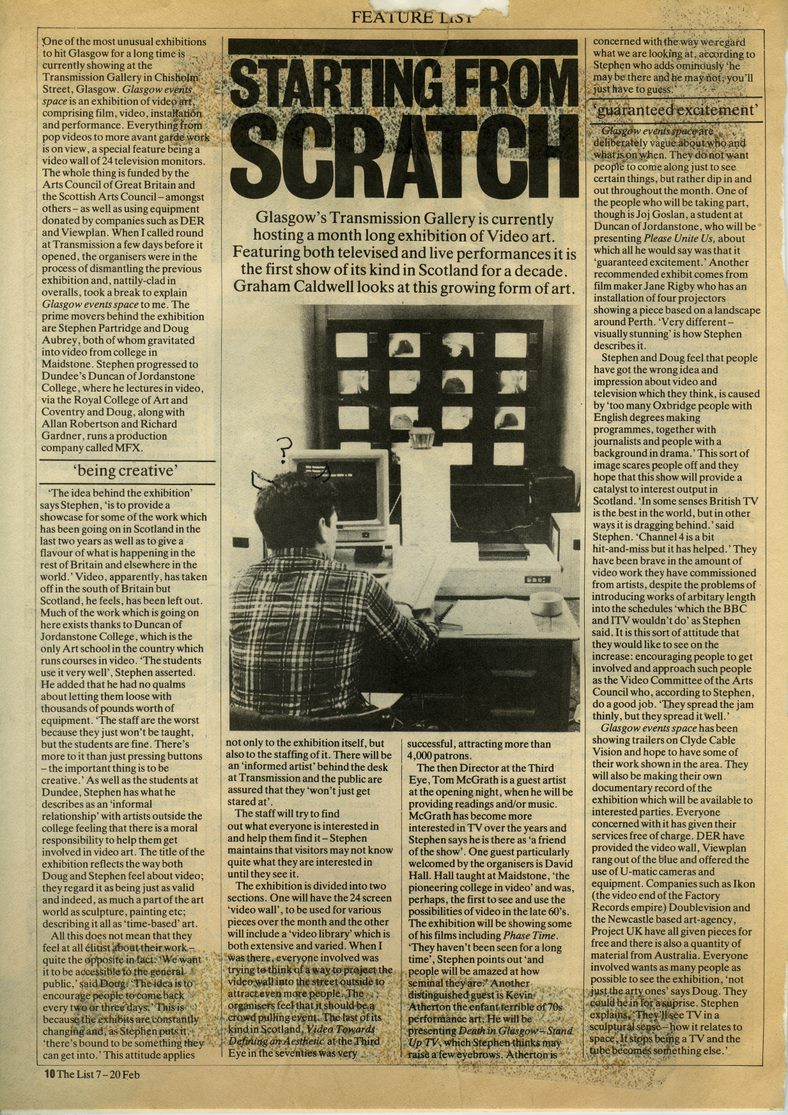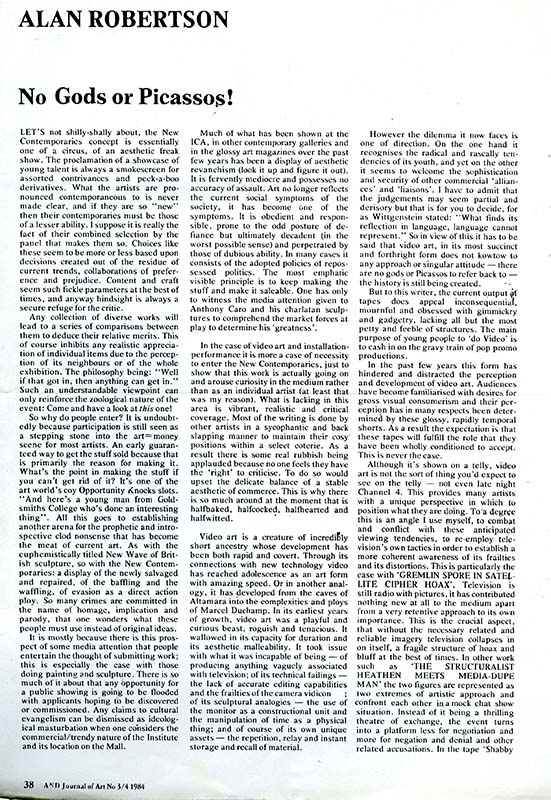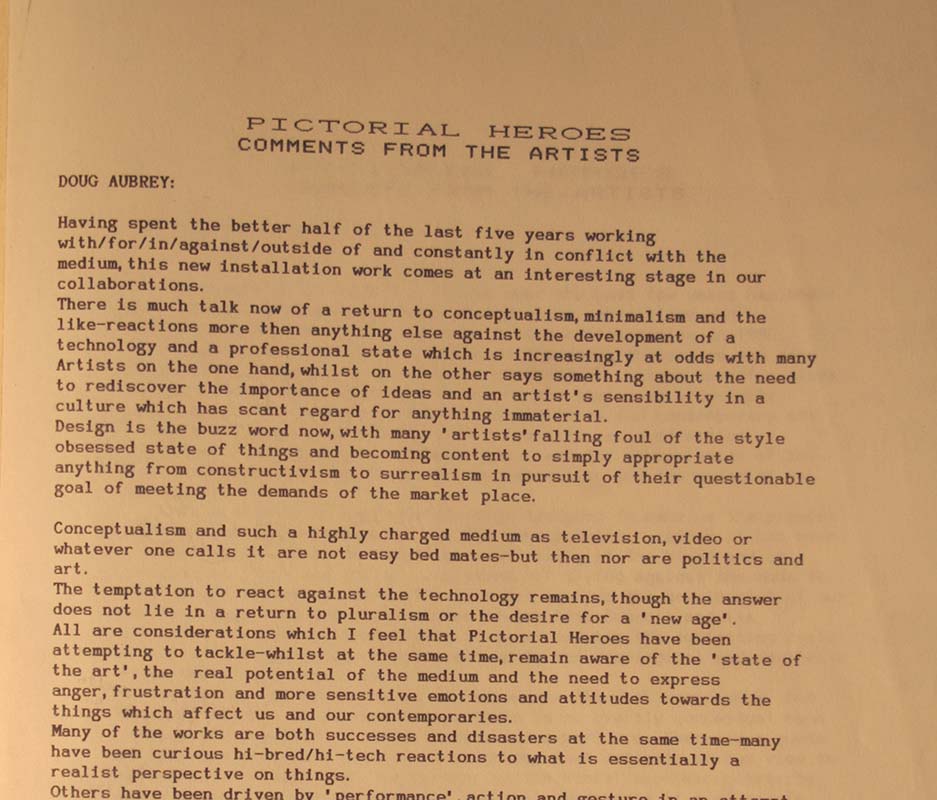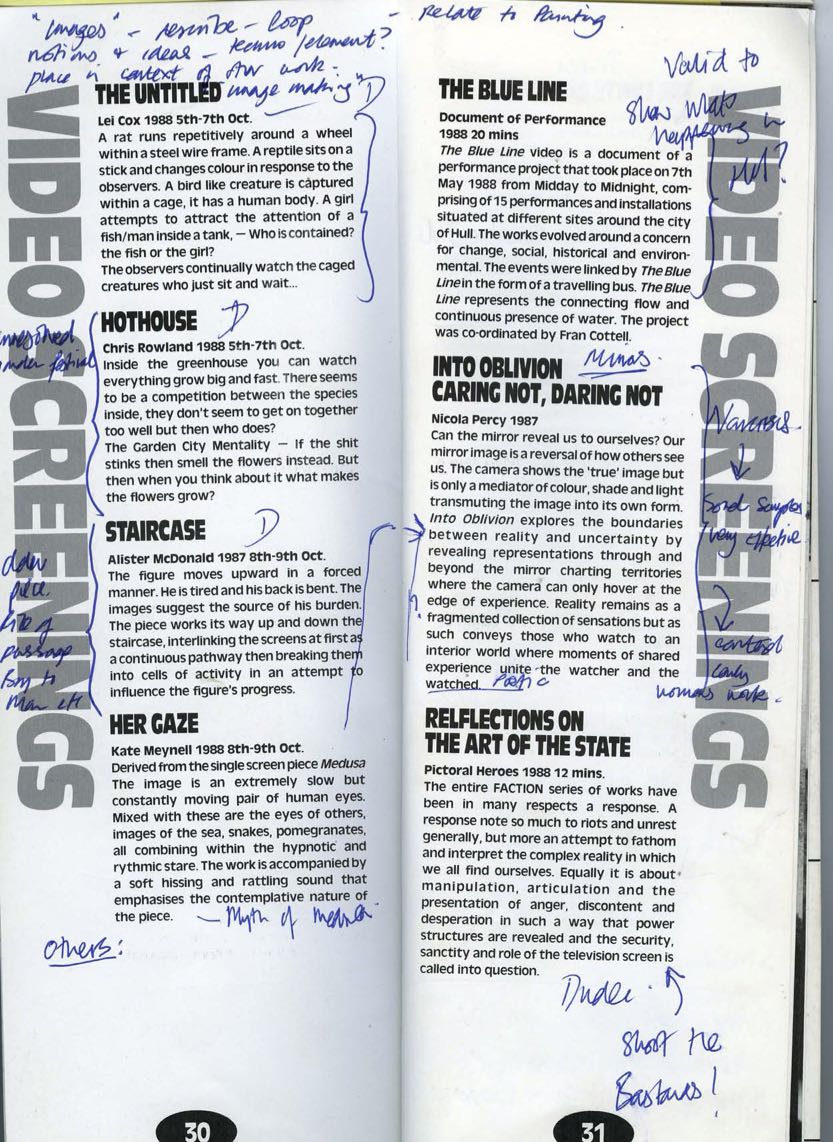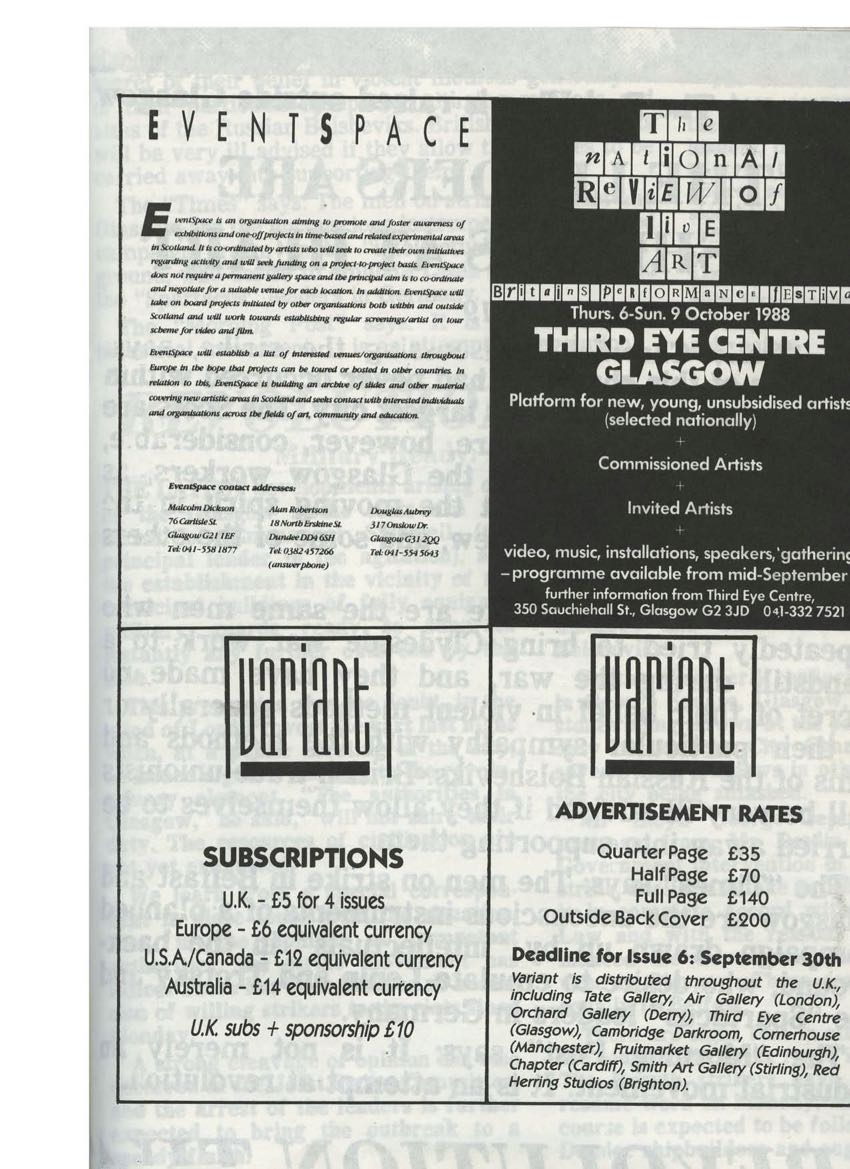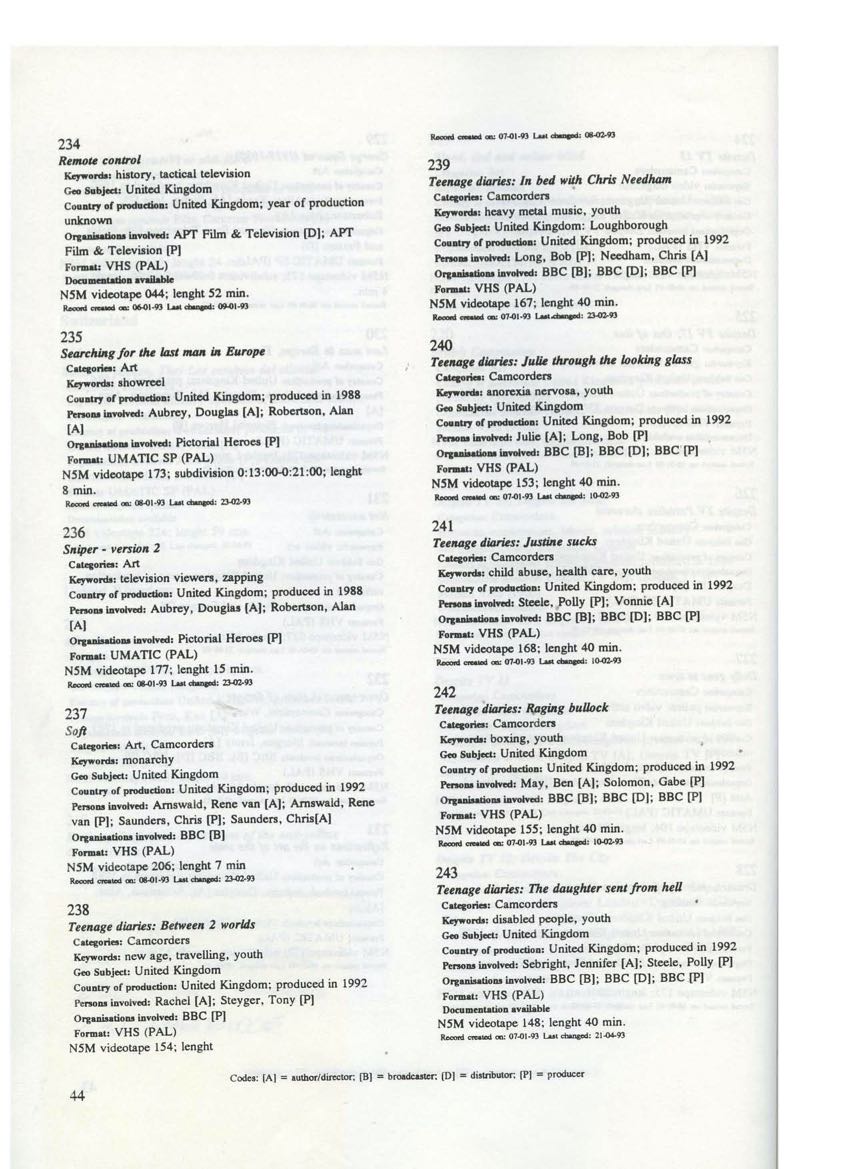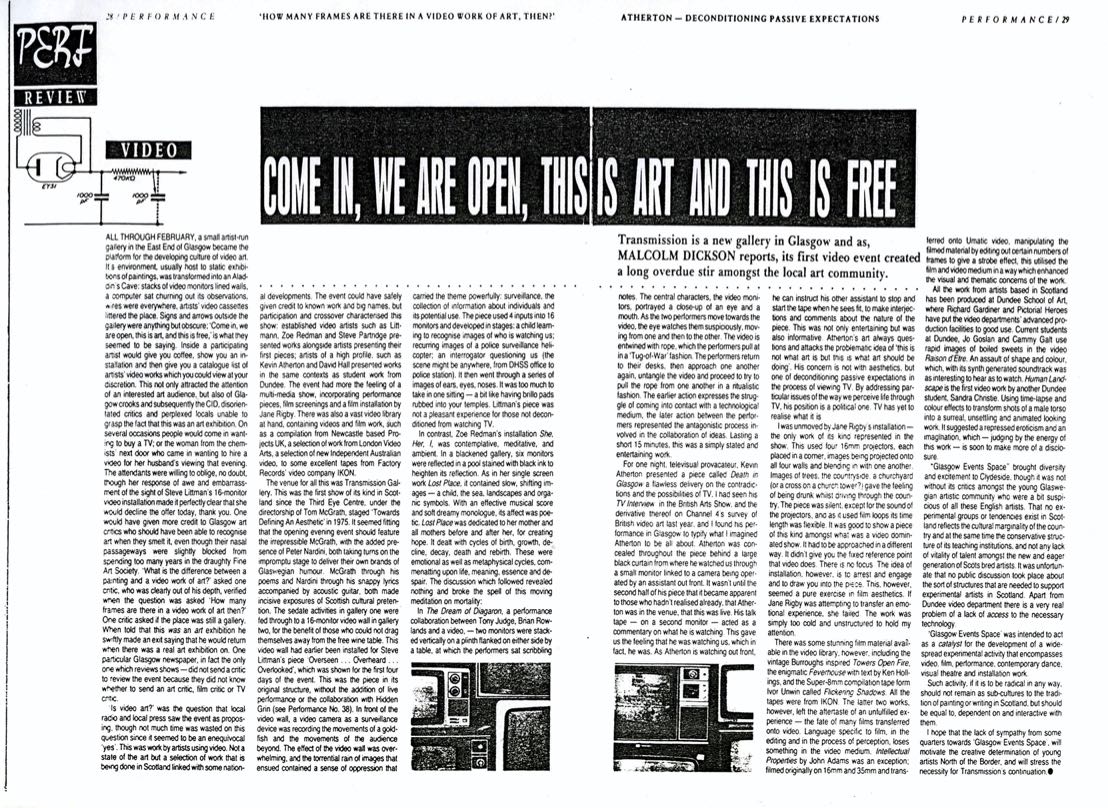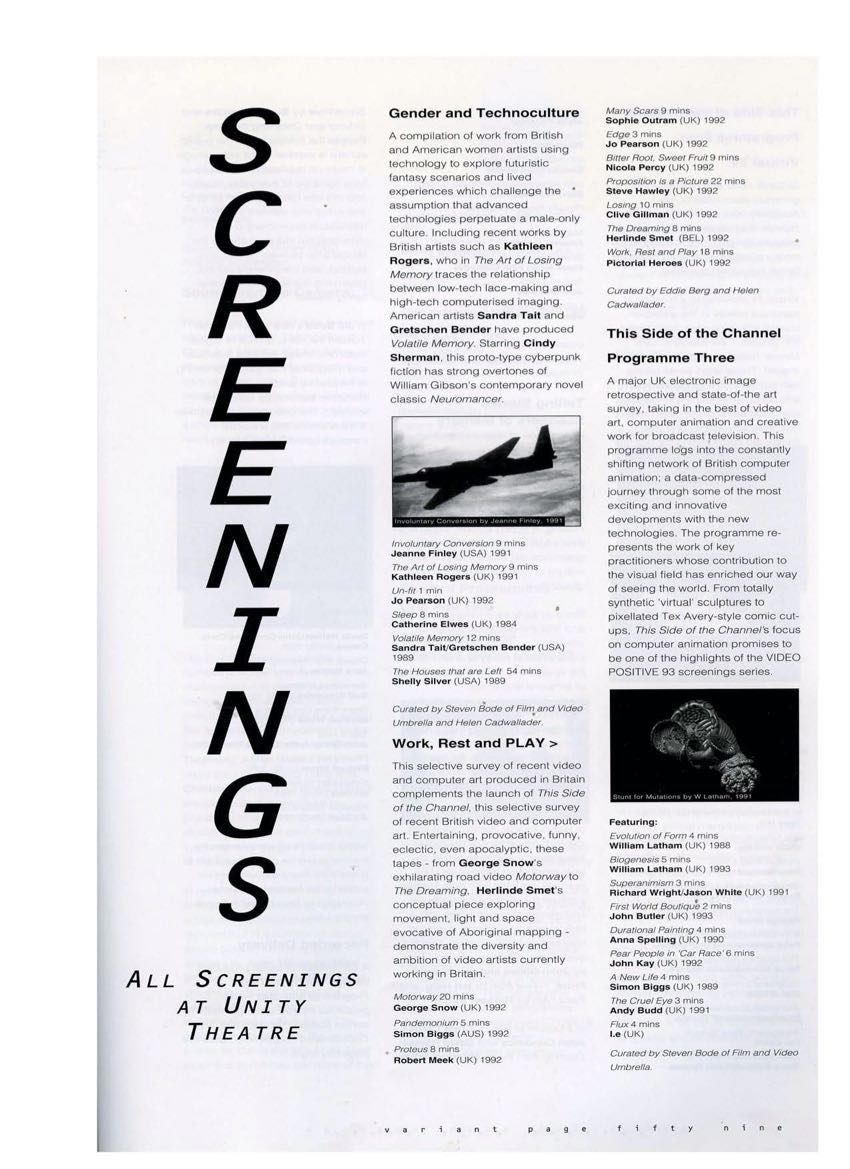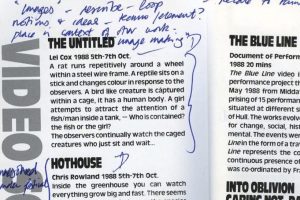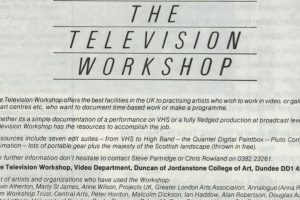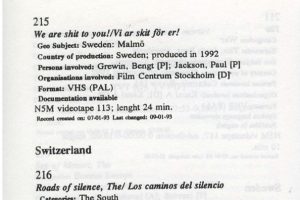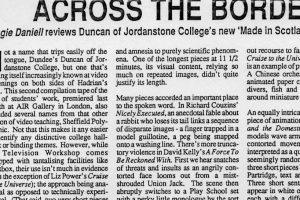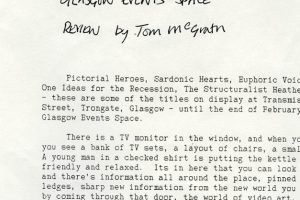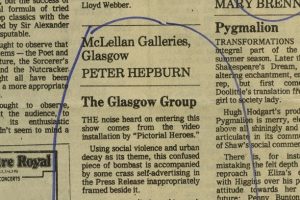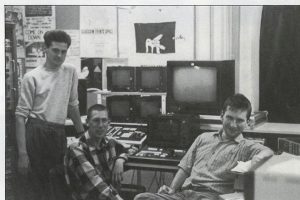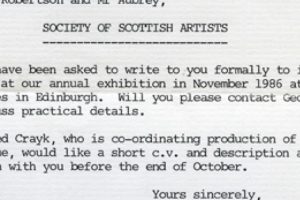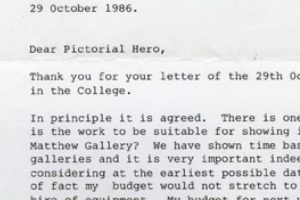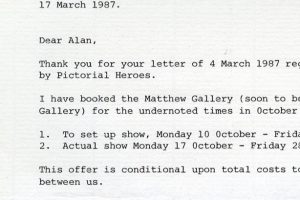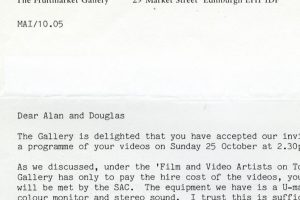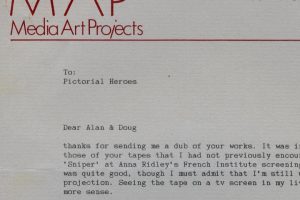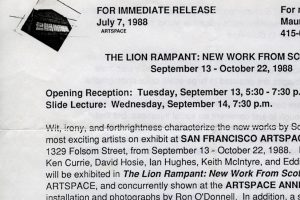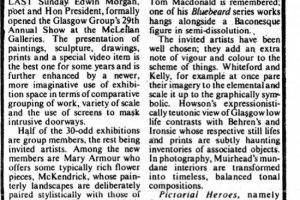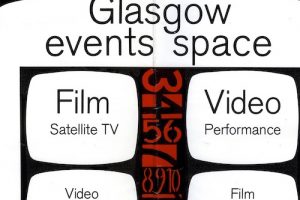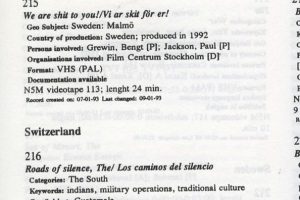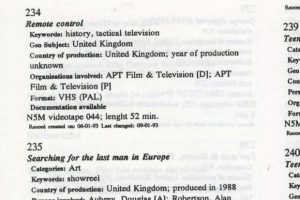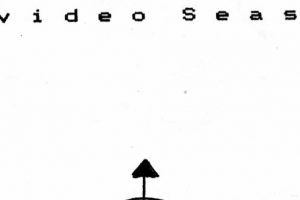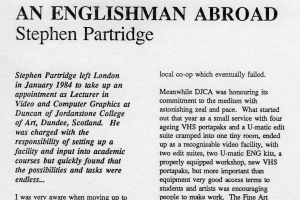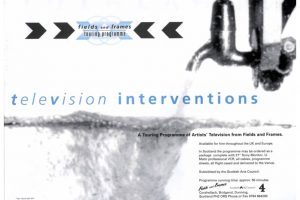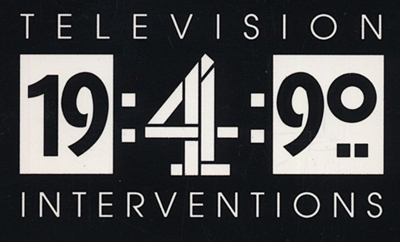Pictorial Heroes
Pictorial Heroes began as a collaboration between two graduates ( Doug Aubrey and Alan Robertson ) from Maidstone College of Art seminal Fine Art Video course. With the legacy of the Falklands War and the Miner’s Strike leaving a deep emotional and creative scar, Pictorial Heroes was their way of collectively responding to the times they were living through in Thatcher’s Britain. Pictorial Heroes was a fusion between art, pop, politics and technology, and took the form of single screen tapes and multi-screen gallery happenings and installations. Foremost amongst them were installations at the SSA, McLellan Galleries and the Seagate in Dundee. They have shown at several international video art festivals, including the Worldwide Video Festival in Den Haag.
-
-
Videography:
1985
Passage Ì85 Between 2 States
Faction>Tottenham Version1986
The Cover Up
The Last Man in Europe
Faction>The Thin Blue Line1987
Arrests
Sniper
Faction>Dance Floor Version1988
Sniper Version 2
A Reflection on the Art of the State1919 – 1990
George Squared (funded by Scottish Arts Council)1993
Work, Rest and Play, Episodes 1, 2 & 31995
Work, Rest and Play, Episodes 4 & 5
World of Skinhead (Doug Aubrey)1996 – 1999
Victim of Geography1997
xxx Tripping (funded by Channel 4)2001
See You In The Next War -
Artist works:
-
Artist assets:
-
Quotes:
The following transcript is an excerpt from Pictorial Heroes Comments from the Artists : where Doug Aubrey and Alan Robertson reflect on their collaborative practice 'Pictorial Heroes'
PICTORIAL HEROES
DOUG AUBREY:
Having spent the better half of the last five years working with/for/in/against/outside of and constantly in conflict with the medium, this new installation work comes at an interesting stage in our collaborations.
There is much talk now of a return to conceptualism, minimalism, and the like-reactions more than anything else against the development of a technology and a professional state which is increasingly at odds with many Artists on the one hand, whilst on the other says something about the need to rediscover the importance of ideas and an artist’s sensibility in a culture which has scant regard for anything immaterial.
Design is the buzz word now, with many ‘artists’ falling foul of the style obsessed state of things and becoming content to simply appropriate anything from constructivism to surrealism in pursuit of their questionable goal of meeting the demands of the marketplace.Conceptualism and such a highly charged medium as television, video or whatever one calls it are not easy bed mates – but then nor are politics and art.
The temptation to react against the technology remains, though the answer does not lie in a return to pluralism or the desire for a ‘new age’. All are considerations which I feel that Pictorial Heroes have been attempting to tackle – whilst at the same time, remain aware of the ‘state of the art’, the real potential of the medium and the need to express anger, frustration, and more sensitive emotions and attitudes towards the things which affect us and our contemporaries.Many of the works are both successes and disasters at the same time – many have been curious hi-bred/hi-tech reactions to what is essentially a realist perspective on things.
Others have been driven by ‘performance’, action and gesture in an attempt to exorcise a certain sense of things – a spirit if you like.
All have been active attempts to both use technology and transcend technology relating it to the world in which we’ve lived up till now and have enabled us to realize both individual and collective potential.
The collaborations themselves have quite often gone beyond simply Allan and myself and often involved many others – as performers, reluctant tape pirates, operators, drivers etc and will continue to do so.
I feel the nature of the medium and its complexity necessitates this collaboration – which in itself calls into questions the role of ourselves as Artists. In this sense I regard collaboration – whether which performers or technical wizards as a superior and higher art form- which celebrates and hi-lights the achievements of the individual artists involved.Working with people and the dialogue which ensues is just as relevant as sitting isolated in a studio or edit suite for eighteen hours a day is – but the dialogue- whether it’s in hustling for gear, or in soft talking performers and in trying to get the best from people and the technology plays a central role in anything Pictorial Heroes have tried to achieve to date.
ALAN ROBERTSON:
The objective of Pictorial Heroes over the past few years has been the constant refinements of those shared views, objections and expectations that brought about our initial collaboration in 1985.
Though on the surface the themes of the works themselves may seem unconnected, fragmentary expressions produced at certain specific times, the basis for these reflections remains the same – an undeniable suspicion of the current trends in both politics and contemporary art practice ie. disposability, market forces, trivia, distraction, ignorance of new home – grown talent, etc, and the manipulation of the relationship between the means of representation and the means of reproduction.This vision is no adoptive strategy designed to make us the premier video artists in Scotland, if not the most prolific; rather it has been a vision built out of the experience of living at the blunt end of current political and social conditions, of trying against the odds to utilise our talents commercially in order to fund the development of our own work away from the machinations of any Arts Council and its attendant cliques, of even having to exist outwith the comforting cycle of a fine art lecturing circuit sewn up by the ideological and aesthetic monoliths of the seventies.
It is true to say there is no romance in the work we produce, but there is humour. It is true to say there is no overtly conceptual base for our work, but it’s rooted in concrete experience. There is a quote by John Berger from a television programme that reflects on our view to making art, he said that the further up the social/economic hierarchy you are the less you are aware of the real experience of most people living below you (not even The Guardian can substitute). It is this aspect of our existence that has driven us to create work, to develop new images to solve the problems of putting the ideas across. Some complain they’re too obvious, some complain they take too long getting there, others refuse to watch because we are all to specific. Whatever their excuses, our reasons continue to be that we make the work we have to make about the things that disturb, annoy, or amuse us.The primary benefit of our collaboration over the years has been keeping the ability to create a discourse about what we are doing, each keeping the other on the straight and narrow and not falling into laxity or vagueness. The convergence of our separate specialisms has also motivated the creation of work and formed the bedrock for our continued exchange of ideas.
Our work has been made on the basis of a struggle to gain resources, support and an audience. Along that path we have had the benefit of meeting and working with some very enthusiastic and supportive people to whom we owe a fair amount. We hope now that artists working in time-based areas, especially an expensive medium like video, can receive the attention and resources (financial and technical) that they warrant.
My Star Sign is Scorpio.
My favourite colour is red.
